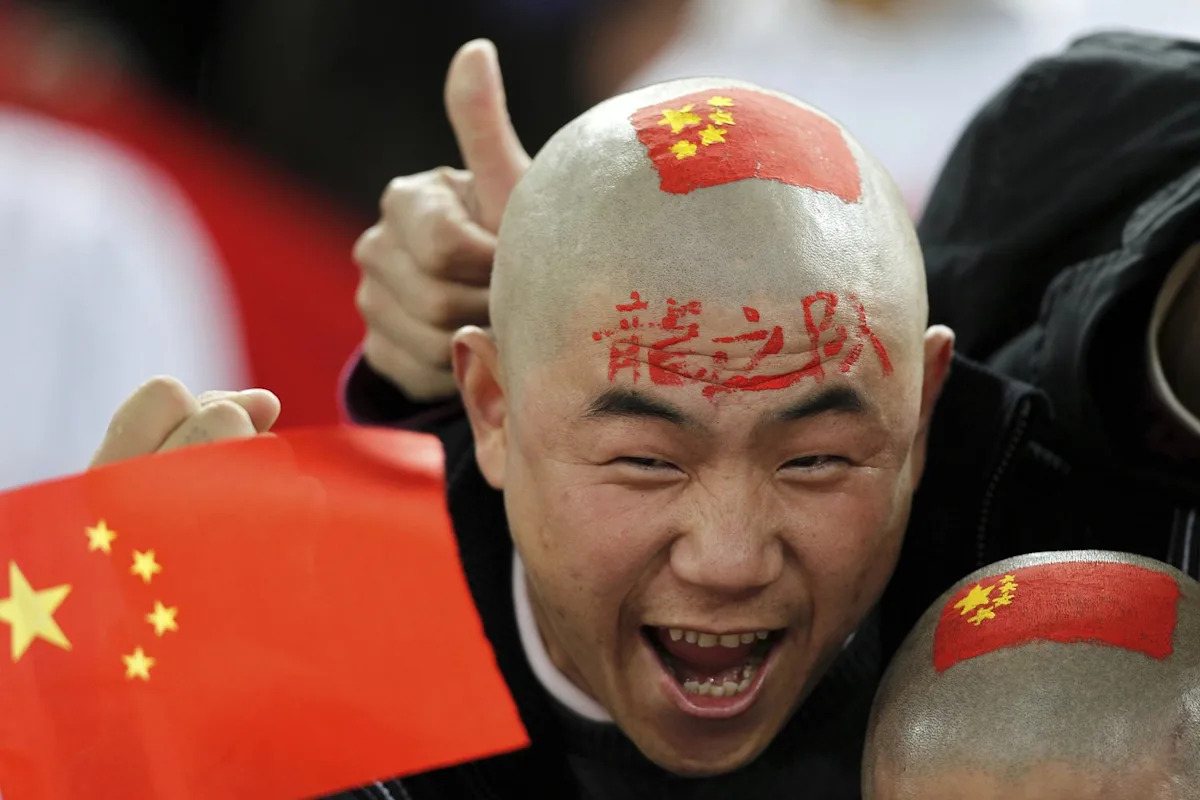In April, Chinese President Xi Jinping made headlines during his visit to a humanoid robotics company, where he humorously suggested integrating robots into China’s struggling men’s soccer team. This event encapsulated the ongoing struggle of a nation with a population of 1.4 billion and an economy that boasts strong manufacturing capabilities, yet falters in the realm of soccer, one of the planet’s most beloved sports.
As of now, China is perilously close to missing out on World Cup qualifying matches, particularly if it cannot secure a victory against Indonesia. This challenge highlights a broader question: why can’t China find a mere eleven players who can perform at an elite level on the soccer field?
### The Core Issues
China’s approach to soccer is emblematic of its broader governance model—marked by stringent control and top-down management. While this governance has propelled China to become a manufacturing powerhouse, it has proven to be a hindrance for soccer development. According to Zhang Feng, a journalist and commentator, “What soccer reflects is the social and political problems of China.” In a country where trust is scarce—especially at team dynamics—players often hesitate to pass the ball, burdened by subconscious fears of repercussions.
The intertwining of politics and sport creates a unique and challenging environment for soccer. When Xi places a significant emphasis on soccer, it induces anxiety within society and strengthens bureaucratic controls, often leading to increased corruption in the sport. As Zhang points out, “In China, the more emphasis the leader places on soccer, the more nervous the society gets.”
### A Historic Struggle
China’s historical performance in soccer is disheartening. The national team has qualified for only one World Cup, back in 2002, and ended up losing all three of its matches without scoring a single goal. Today, FIFA ranks China a disappointing No. 94, trailing behind countries like Syria, which is beset by civil war.
This ranking starkly contrasts nations with much smaller populations that have managed to excel in the sport. For instance, Iceland, with about 400,000 residents, is celebrated for its recent achievements in soccer, leaving China to ponder its inefficiencies.
### Socio-Cultural Hurdles
Many commentators agree that China’s rigid educational system and emphasis on rote learning clash with the dynamic nature of soccer, which thrives on creativity and spontaneity. Wang Xiaolei, a fellow sports commentator, highlights this conflict: “What are we best at? Dogma. But football cannot be dogmatic.” As a result, the culture necessary for success in soccer is often stifled at a young age when children face academic pressures.
Englishman Rowan Simons, a long-time resident and soccer commentator in China, argues that the lack of a vibrant soccer culture is linked to the absence of grassroots organizations. Genuine interest and investment in youth development are suppressed under the Communist Party’s rule, limiting opportunities for passionate soccer lovers who wish to cultivate talents.
### Mixed Results and Future Challenges
While China’s women’s soccer team has fared somewhat better historically, even their recent performances demonstrate a downward trajectory as they struggle against increasingly competitive European teams. Despite having once been at the forefront of women’s soccer, China now lags behind, with a concerning exit from the recent Women’s World Cup after a heavy defeat to England.
The Chinese government has made attempts to bolster soccer by integrating it into schools; however, the focus remains on sports that yield multiple medals in events like diving and table tennis. Such decisions reflect a preference for sports that rely on repetitive training rather than creative engagement. As Zhang states, young people are primarily driven to succeed academically, limiting their exposure to engaging recreational activities like soccer.
### Corruption and Its Ripple Effects
Recent scandals have left a scar on Chinese soccer’s reputation. Li Tie, the national team coach, was sentenced to 20 years in prison for corruption and match-fixing, problems that extend deep into the domestic leagues. As clubs poured substantial resources into importing foreign talent, the domestic soccer structure became riddled with corrupt practices, undermining real talent cultivation.
The collapse of clubs like Guangzhou Evergrande, which symbolized the financial mismanagement rampant in the Super League, has highlighted the challenges faced in building a sustainable competitive soccer framework. The repercussions extend beyond the field, causing parents to hesitate in allowing their children to engage in soccer, fearful of the corrupt environment that surrounds it.
### A Call for Change
The question remains: how can China turn its soccer fortunes around? Advocates for change argue for a shift away from bureaucratic control, paving the way for a more grassroots approach that encourages creativity and enjoyment of the game. Such changes may involve deregulating certain aspects of the sport and allowing for the emergence of community-driven soccer initiatives.
At the heart of any potential recovery lies a need to establish a culture that values passion and engagement over rigid doctrines. With Xi asserting a personal interest in rejuvenating soccer, the hope remains that strategic reforms could eventually yield a national team that not only appears on the world stage but also competes with integrity and spirit.
As it stands, the world will continue to watch as China navigates its complex relationship with soccer, learning that real greatness often requires more than just the desire for success—it demands an understanding of the dynamic spirit of the game itself. While robots may not be the answer, perhaps a recalibration of values and structures might just pave the way for a brighter soccer future.
Source link


:max_bytes(150000):strip_icc()/GettyImages-1667326849-2bad1b7fcb0943f69ae1225bedab6ac1.jpg?w=150&resize=150,150&ssl=1)






